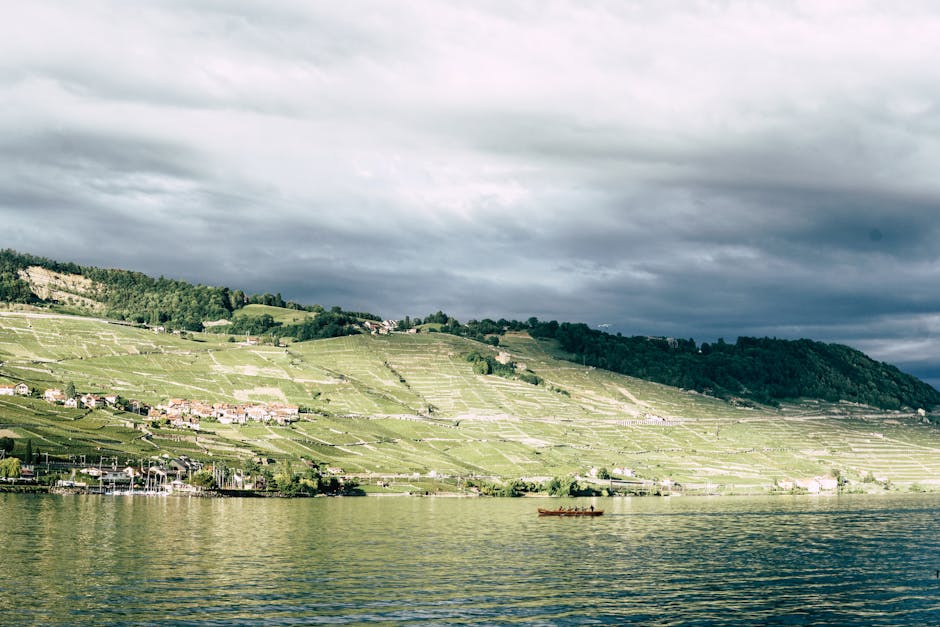Tourism, a dynamic industry encompassing travel and hospitality, is a powerful engine of economic growth for numerous regions across the globe. Its impact extends far beyond the immediate experience of visitors, generating significant benefits that trickle down to various sectors and communities. This exploration delves into the multifaceted economic advantages of tourism, highlighting its contributions to a region’s prosperity.
A pivotal economic advantage lies in the creation of jobs. The industry itself generates employment opportunities in a multitude of roles, from hotel staff and tour guides to restaurant workers and transportation providers. Furthermore, supporting sectors, such as retail shops, craft businesses, and entertainment venues, also benefit from increased demand, leading to a substantial multiplier effect. This ripple effect stimulates local economies by creating numerous jobs and opportunities for individuals from diverse backgrounds, including those who might not otherwise have access to formal employment. Consider a bustling coastal town. The influx of tourists necessitates an expansion of lodging facilities, which in turn requires construction workers, plumbers, electricians, and other skilled laborers. These jobs not only provide income but also enhance the community’s overall well-being and skillset.
Another significant economic gain is the increased revenue generation for local governments. Taxation on tourism-related activities, including accommodation, food and beverage services, and attractions, directly contributes to local government coffers. This funding can be instrumental in financing crucial public services such as infrastructure development, education, healthcare, and public safety. For instance, revenue generated from entrance fees to national parks can fund park maintenance and environmental protection, enriching both the natural landscape and the surrounding communities. Moreover, this revenue stream can help to support community development initiatives and improve living standards.
Beyond direct taxation, tourism generates substantial indirect revenues. Local businesses often procure supplies and services from other enterprises, boosting the overall economic activity within the region. This interconnectivity and interdependence within the local supply chain amplify the economic impact of tourism, making it a critical catalyst for sustainable development. Picture a village where a local artisan creates handcrafted souvenirs. A surge in tourism demand for these items leads to increased production, bolstering the artisan’s income and reinforcing the village’s economic vitality.
Furthermore, tourism contributes significantly to a region’s infrastructure development. The demand for improved transportation networks, better communication facilities, and modern accommodations stimulates investment in infrastructure projects. This is evident in the construction of new roads, airports, and ports, improving accessibility and enhancing the overall travel experience for tourists. A renovated coastal promenade, designed to accommodate the increasing flow of visitors, not only enhances the aesthetics but also boosts the economic vibrancy of the region. Such investments translate into enhanced quality of life for residents and create a more welcoming environment for both locals and visitors.
The benefits of tourism extend beyond the realm of immediate economic gains. The preservation and promotion of cultural heritage are directly impacted by tourist interest. Regions with rich historical sites or unique traditions often see an increase in cultural preservation efforts as tourism provides the necessary funding and recognition to protect these assets. This could involve renovating historical buildings, supporting traditional craftsmanship, or creating museums. For example, a region’s unique musical traditions may attract cultural tourism, which, in turn, may provide financial support for the preservation of those very traditions.
Moreover, the indirect impact on the environment should not be overlooked. Environmental sustainability is crucial to the long-term viability of tourism. The industry frequently needs to implement environmentally conscious practices to attract environmentally responsible tourists. This could involve conserving natural resources, reducing pollution, and promoting ecotourism. The growth of sustainable tourism principles fosters ecological preservation and enhances the tourism experience, thereby fostering greater harmony between economic development and environmental stewardship. Sustainable tourism practices contribute to preserving the natural beauty of a destination for both present and future generations.
A comprehensive view of tourism’s economic impact necessitates a discussion of its potential drawbacks. An uncontrolled influx of tourists may strain resources such as water, energy, and waste management systems. Furthermore, rapid development driven by tourism can lead to cultural homogenization and the displacement of local traditions. Recognising these potential challenges and proactively addressing them through appropriate planning and management is essential for achieving sustainable tourism development. Local communities must be actively involved in the decision-making processes, ensuring that tourism benefits all stakeholders, not just a select few. Effective management includes promoting fair wages, providing training opportunities for local communities, and ensuring that tourists are treated respectfully.
In conclusion, tourism represents a potent force in shaping regional economies. By stimulating job creation, increasing revenue, fostering infrastructure development, and promoting cultural preservation, it contributes significantly to a region’s overall prosperity. However, it is imperative to approach tourism development with a holistic perspective, considering both the economic gains and the potential environmental and social consequences. This means focusing on sustainable tourism practices, empowering local communities, and ensuring a balance between economic growth and environmental protection. In doing so, regions can harness the power of tourism to build prosperous, resilient, and culturally rich destinations for the benefit of both visitors and residents alike.






